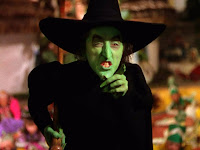 I quite liked it at Primary School. Some of the teachers were nice, especially Miss Dumelow, who took us out for art classes and made us paint pubs. I don’t know why she didn’t get us to paint any other buildings – just pubs. But we had to do lots of stupid things at school like practicing our times tables with our gas masks on. We sounded like a mob of diseased seals and nobody could tell if we were making lots of mistakes or not. Sometimes we had to walk around outside in the playground with our gas masks on, and make sure they worked, by putting a piece of paper over them to see if we could make the paper cling to the mask by sucking in air. Gas masks were a big nuisance, and of course it turned out that we never needed them at all.
I quite liked it at Primary School. Some of the teachers were nice, especially Miss Dumelow, who took us out for art classes and made us paint pubs. I don’t know why she didn’t get us to paint any other buildings – just pubs. But we had to do lots of stupid things at school like practicing our times tables with our gas masks on. We sounded like a mob of diseased seals and nobody could tell if we were making lots of mistakes or not. Sometimes we had to walk around outside in the playground with our gas masks on, and make sure they worked, by putting a piece of paper over them to see if we could make the paper cling to the mask by sucking in air. Gas masks were a big nuisance, and of course it turned out that we never needed them at all. |
| My Gran, Emily Powell |
As I escaped from Benson Road Primary school each day (which was surrounded by a very high wall at the back and iron railings surmounted by spikes at the front), sometimes I was lucky as I ran out of the playground, to catch a glimpse of Georgina playing with her friends. Why do I remember her name as Georgina? Perhaps I have her name mixed up with the heroine of Enid Blyton's 'Five on a Treasure Island'. Georgina was about eight, and her head was haloed with very tight golden curls. She was always dressed very neatly, often in a ribbed green turtle neck sweater, a grey pleated skirt, white ankle socks, and shiny black patent shoes with a strap and a buckle. If she caught me looking at her she would peer at me with interest through thick 'jam pot end' golden wire glasses. Georgina never said a word to me, but engendered deep within me a longing, for I know not what.
 |
| Benson Road Primary School, now with blue railings instead of green |
After slowing down at the green cast iron gate, for there would be a teacher there, looking for pupils who were up to mischief, I ran on to Gran’s cottage. I would know where to find her from what day it was. If it was Monday, Gran would be in the brew house washing the clothes; and I would turn the mangle for her. I loved my Gran and still do, although she passed away sixty years ago. My brother would come to Gran’s too, but usually later on, for he was never in a hurry. We would dawdle there a while and then head off home. Sometimes we were a train, and one of us would hold on to the other's jersey and we would steam home. We would always go across the railway bridge, and occasionally climb over the parapet to the ledge and walk along it to the other side. It was a long drop down to the railway tracks and we were not allowed to cross the bridge on the outside of the parapet in case we fell down onto the track; so of course, that’s what we did.
 My brother Michael, all dressed up My brother Michael, all dressed up |
Usually we looked more like these kids, and Michael's socks were always falling down
|
One afternoon, we were walking along the narrow ledge, when Michael slipped and fell. Luckily there was a goods train standing still below him, and Michael fell onto one of its cars, which had a tarpaulin stretched tightly across the top. Michael bounced a little bit, then got up and shouted something and waved to me. Then the train got up steam and off it went; we found out later that it went to Crewe, which was about a hundred miles away. So, what to do… I decided that if I said nothing, no one would be the wiser. But of course Mom did notice that one of her children was missing, and got it out of me about what had happened. Then she got on to the police, and later that evening Michael was returned to the bombed street where we lived, in a black police car with its
bell ringing. He was looking out of the window waving to the kids in the street, looking very happy, until he saw Mom’s face.
Neither of us came out of that episode very well.


















